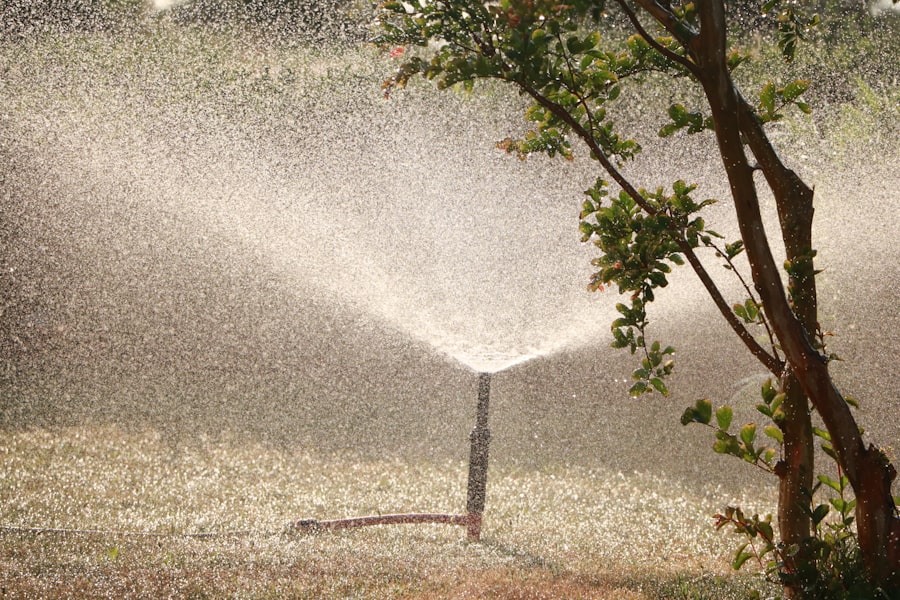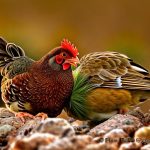Coyotes are common predators of chickens and pose a significant threat to flocks. These adaptable wild canines inhabit various environments, from rural areas to urban settings. As opportunistic hunters, coyotes readily prey on chickens when given the chance.
Their intelligence and cunning nature make them formidable adversaries for chicken owners. Primarily nocturnal, coyotes are most active at night when chickens are roosting and vulnerable. Their acute senses of sight, smell, and hearing enable them to easily locate and track potential prey.
Coyotes are also skilled diggers and climbers, allowing them to access chicken coops and enclosures. Chicken owners must understand the threat coyotes present and implement proactive measures to protect their flocks. Coyotes threaten not only chickens but also other small livestock and pets.
Their bold and persistent hunting behavior makes them a constant concern for rural and suburban residents. Understanding coyote behavior and habits is crucial for developing effective strategies to keep them away from properties and protect chickens from harm.
Table of Contents
- 1 Securing the Chicken Coop: Tips for Keeping Coyotes Out
- 2 Using Deterrents: How to Keep Coyotes Away from Your Property
- 3 Building a Coyote-Proof Fence: A Step-by-Step Guide
- 4 Nighttime Protection: Keeping Chickens Safe from Coyotes after Dark
- 5 Creating a Safe Environment: Tips for Minimizing Coyote Attraction to Your Property
- 6 What to Do If You Encounter a Coyote: Safety Tips for Dealing with Wildlife
- 7 FAQs
Key Takeaways
- Coyotes pose a threat to chickens as they are natural predators
- Securing the chicken coop with sturdy fencing and locks can help keep coyotes out
- Using deterrents such as motion-activated lights and sound can help keep coyotes away from your property
- Building a coyote-proof fence involves burying the fence underground and using a roller bar at the top
- Nighttime protection for chickens can be achieved by locking them in a secure coop and using motion-activated lights
- Minimize coyote attraction to your property by removing food sources and securing garbage bins
- If you encounter a coyote, stand tall, make loud noises, and slowly back away to safety
Securing the Chicken Coop: Tips for Keeping Coyotes Out
Inspect and Reinforce the Coop
Start by inspecting the coop for any potential entry points, such as gaps in the fencing, loose boards, or holes in the ground. Repair any damage and reinforce weak spots to prevent coyotes from gaining access.
Use Predator-Proof Materials
Use heavy-duty hardware cloth or welded wire mesh to cover windows, vents, and other openings to prevent coyotes from reaching in and grabbing chickens. Consider installing a predator-proof apron around the perimeter of the coop to deter digging. This can be achieved by burying hardware cloth or welded wire mesh at least 12 inches deep and extending it outwards at a 90-degree angle.
Additional Security Measures
Make sure the coop door is securely latched at night to prevent coyotes from forcing their way in. Another effective way to secure the chicken coop is by installing motion-activated lights or alarms. Coyotes are wary of bright lights and loud noises, so having these deterrents in place can help keep them at bay. Consider using solar-powered lights or alarms that are easy to install and maintain. By taking these proactive measures, you can significantly reduce the risk of coyote attacks on your chickens.
Using Deterrents: How to Keep Coyotes Away from Your Property

In addition to securing the chicken coop, there are several deterrents that can be used to keep coyotes away from your property. One effective method is to use scent deterrents, such as predator urine or ammonia-soaked rags, around the perimeter of the property. Coyotes have a strong sense of smell and will avoid areas that are marked with the scent of potential predators.
These scent deterrents can be strategically placed along the property line to create a barrier that deters coyotes from entering. Another effective deterrent is the use of motion-activated sprinklers or sound devices. These devices are triggered by motion and emit a sudden burst of water or loud noise, which startles and deters coyotes.
Place these devices in areas where coyotes are likely to approach, such as near the chicken coop or around the property perimeter. This can help create an uncomfortable environment for coyotes and discourage them from coming near your property. Livestock guardian animals, such as dogs or llamas, can also be effective deterrents for keeping coyotes away from your property.
These animals are natural predators and will protect the flock from potential threats. However, it’s important to properly train and socialize guardian animals to ensure they are effective in deterring coyotes without posing a risk to the chickens.
Building a Coyote-Proof Fence: A Step-by-Step Guide
Building a coyote-proof fence is an essential step in protecting your chickens from predators. Start by selecting a sturdy fencing material, such as chain link or woven wire, that is at least 6 feet tall. Coyotes are skilled climbers, so it’s important to choose a fence that is difficult for them to scale.
Additionally, bury the bottom of the fence at least 12 inches deep to prevent coyotes from digging under it. When installing the fence, make sure it is securely anchored to sturdy posts and that there are no gaps or weak spots that coyotes could exploit. Consider adding an outward-facing overhang at the top of the fence to further deter climbing.
This can be achieved by attaching an angled section of fencing or wire mesh along the top of the fence that extends outwards at a 45-degree angle. To make the fence even more secure, consider adding an electric wire at the top and bottom of the fence. This will deliver a mild shock to any predator that attempts to climb or dig under the fence, effectively deterring them from trying to breach it.
Be sure to follow local regulations and safety guidelines when installing electric fencing.
Nighttime Protection: Keeping Chickens Safe from Coyotes after Dark
Nighttime poses the greatest risk for coyote attacks on chickens, so it’s important to take extra precautions to keep your flock safe after dark. One effective method is to lock up the chickens in a secure coop at night. Make sure all doors and windows are securely latched, and consider adding additional locks or latches for extra security.
This will prevent coyotes from gaining access to the chickens while they are roosting. Consider using motion-activated lights or alarms around the chicken coop to deter nocturnal predators like coyotes. These devices can startle and deter coyotes from approaching the coop during the night.
Additionally, consider using reflective tape or predator eyes balloons near the coop to create an illusion of being watched, which can deter coyotes from approaching. Another effective method for nighttime protection is using guard animals, such as dogs or geese, that can alert you to potential threats and deter predators from approaching the coop. These animals can provide an added layer of security for your flock during the night when you may not be able to monitor them closely.
Creating a Safe Environment: Tips for Minimizing Coyote Attraction to Your Property

Remove Attractants
Start by removing any potential food sources that may attract coyotes, such as pet food left outside, garbage bins that are not properly secured, or fallen fruit from trees. By eliminating these food sources, you can reduce the likelihood of coyotes being drawn to your property.
Maintain a Clean Property
Keep your property well-maintained by regularly mowing the lawn, trimming shrubs, and removing any debris or clutter that could provide cover for coyotes. By keeping your property clean and well-groomed, you can reduce potential hiding spots for coyotes and make it less appealing for them to linger around.
Deter Coyotes with Technology
Consider installing motion-activated sprinklers or sound devices in areas where coyotes are likely to approach, such as near the chicken coop or garden. These devices can startle and deter coyotes from coming near your property, creating an uncomfortable environment that discourages them from staying.
What to Do If You Encounter a Coyote: Safety Tips for Dealing with Wildlife
If you encounter a coyote on your property or while out with your chickens, it’s important to know how to safely handle the situation. First and foremost, never approach or attempt to feed a coyote. Keep a safe distance and avoid making direct eye contact with the animal.
If a coyote approaches you, make yourself appear larger by raising your arms and making loud noises to scare it away. If you have guard animals on your property, such as dogs or llamas, allow them to do their job in deterring the coyote while you safely retreat indoors or to a secure location. It’s important not to leave small children or pets unattended outside when there is a known presence of coyotes in the area.
In the event of a persistent or aggressive coyote presence on your property, contact local wildlife authorities or animal control for assistance. They can provide guidance on how to safely handle the situation and may be able to help with trapping or relocating problem animals. By understanding the threat that coyotes pose to chickens and implementing proactive measures to protect your flock, you can create a safe environment for your birds and minimize the risk of predation.
With careful planning and diligence, you can effectively keep coyotes away from your property and ensure the safety and well-being of your chickens.
If you’re looking for tips on how to keep coyotes away from your chickens, you may also be interested in learning about the best practices for feeding ducks. Check out this article on what you should feed ducks to ensure the health and safety of your feathered friends.
FAQs
What are coyotes?
Coyotes are a species of wild canine found throughout North and Central America. They are known for their adaptability and opportunistic feeding habits.
Why are coyotes a threat to chickens?
Coyotes are known to prey on small animals, including chickens. They can pose a threat to backyard poultry and can cause significant losses if not properly managed.
How can you keep coyotes away from chickens?
There are several methods to keep coyotes away from chickens, including using secure fencing, keeping chickens in a secure coop at night, using guard animals such as dogs, and employing scare tactics such as noise makers or motion-activated lights.
What should you do if you encounter a coyote near your chickens?
If you encounter a coyote near your chickens, it is important to make loud noises, wave your arms, and try to scare the coyote away. It is important to never approach or corner a coyote, as they can be unpredictable and potentially dangerous.
Are there any legal methods for controlling coyotes?
In some areas, there may be legal methods for controlling coyotes, such as trapping or hunting. It is important to check local regulations and obtain any necessary permits before attempting to control coyote populations.
Meet Walter, the feathered-friend fanatic of Florida! Nestled in the sunshine state, Walter struts through life with his feathered companions, clucking his way to happiness. With a coop that’s fancier than a five-star hotel, he’s the Don Juan of the chicken world. When he’s not teaching his hens to do the cha-cha, you’ll find him in a heated debate with his prized rooster, Sir Clucks-a-Lot. Walter’s poultry passion is no yolk; he’s the sunny-side-up guy you never knew you needed in your flock of friends!







